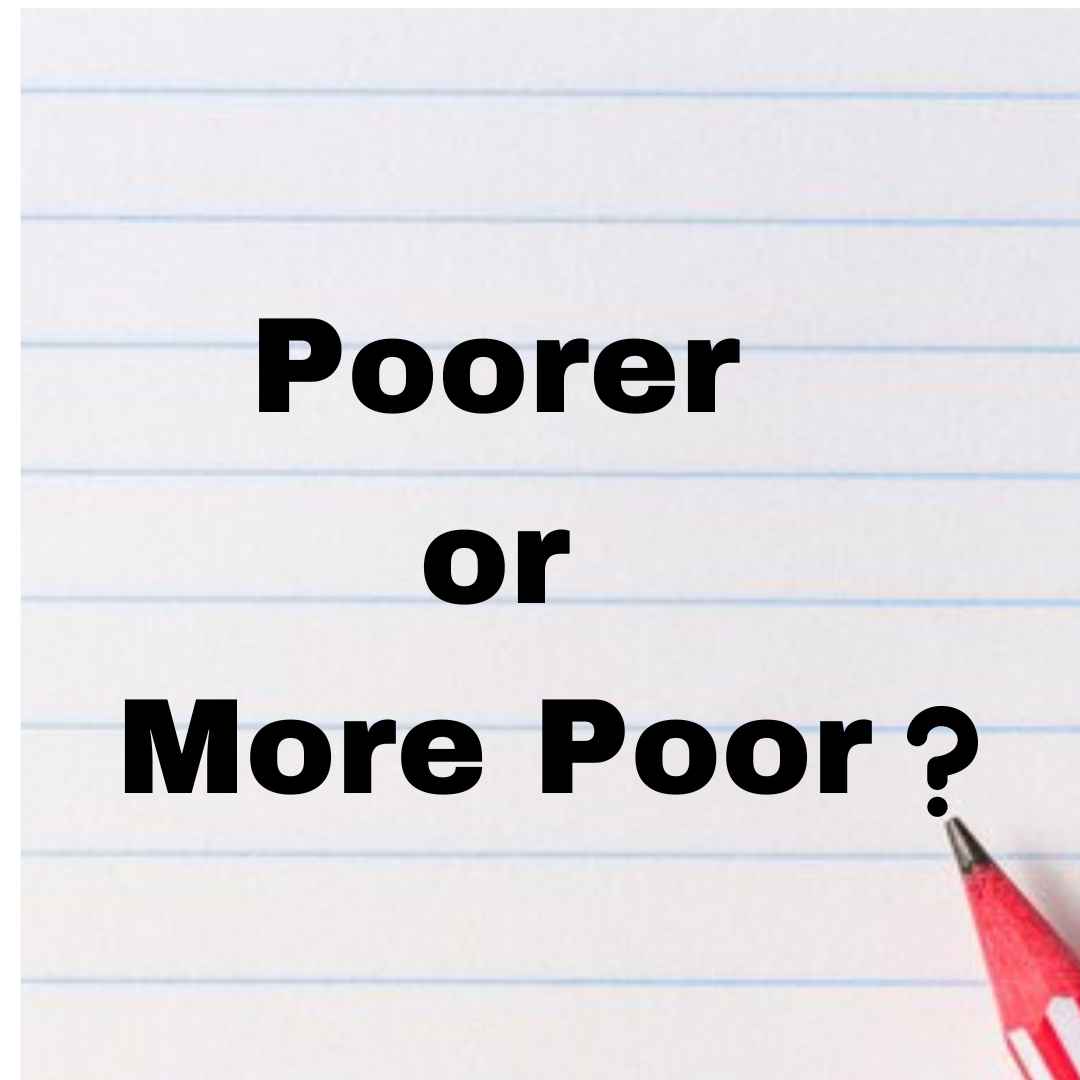Poorer or More Poor

Welcome to our easy-to-understand guide post about the difference between “poorer” and “more poor” in English! These terms might seem similar, but they’re used in different situations. In this blog post, we’ll break down their meanings, grammar rules, and provide examples to help you use them correctly.
What Does “Poorer” Mean?
“Poorer” is the comparative form of the adjective “poor.” It’s used when comparing two things or people to say that one has less money or fewer possessions than the other. For example, “She is poorer than her neighbor.”
What About “More Poor”?
“More poor” is not commonly used in English. Instead, we use “poorer” to express the same idea. Saying “more poor” can sound awkward or incorrect to native speakers. It’s better to stick with “poorer” when comparing the financial status of two things or people.
Grammar Rules:
When comparing two things, use “poorer” followed by “than.” For example, “This country is poorer than its neighbors.” When comparing three or more things, use “poorest.” For example, “This is the poorest region in the country.”
Examples:
- She feels poorer after losing her job.
- The second-hand car was cheaper, but it was also poorer in quality.
- As the economy worsened, more families became poorer.
- He chose the smaller house because it was less expensive, but now he regrets it because it’s also poorer in condition.
Tips for Using “Poorer” Correctly:
- Remember that “poorer” is the correct comparative form of “poor.”
- Always use “poorer” when comparing the financial status of two things or people.
- Avoid using “more poor,” as it’s not commonly used and can sound awkward.
Read also: That Works Perfect or Perfectly
Conclusion:
Understanding the difference between “poorer” and “more poor” is essential for clear and accurate communication in English. By following the grammar rules and using “poorer” correctly in your sentences, you can express comparisons of wealth or possessions with confidence. Keep practicing, and soon you’ll be using “poorer” perfectly in your writing and conversations!